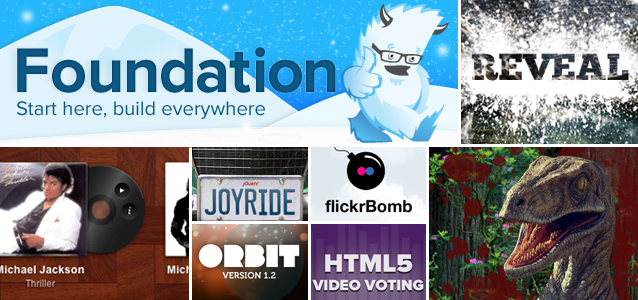
This has been a crazy year for us here at ZURB. In between laser tag, pumpkin carving, tons of great soapbox talks and one madcap 24-hour ZURBwired, we did more open source projects than we ever have in the past. It's been tremendously fun and extremely rewarding as well as difficult, frustrating, and challenging. Here's the top 4 things we learned on our open-source escapades in 2011.
The Need for Open Source Tools is High
We don't go out of our way to broadcast our open source efforts, our marketing efforts are usually devoted to other aspects of our business. On the ZURBplayground, we post pages talking about plugins or tools we've created and made available, and we'll blog or tweet a bit, but the adoption and feedback we get on these things is incredible. With very little effort to spread the word, these things really get around.
The Bar for Quality of Open Source Tools is High
We try and ensure that the open-source code we push out is as good as we can make it — and we still need to make it better. As soon as you make something available, even when it's free, you will immediately start to hear how it could be better, or more robust, or more capable. Tools like jQuery have set a very high bar for open source (at least technically).
Open Source Requires Serious Commitment
When we released Foundation, we decided from the start that we were in it for the long haul. No matter how successful it might be out of the gate, we knew there was a degree of dedication and a show of commitment that would be required for people to trust a new tool. We were right, and our day-to-day commitment to these projects is surprisingly high.
Open Source is Full of Fascinating Challenges
Build something open source if you ever want to know if you can handle building something well, cleanly, and elegantly. You'll learn more about the edge cases, unique needs and general mindset of users than you ever will from other avenues.
Here's a recent example: Foundation lets you tag items to be shown on specific types of devices, like phones or tablets. Our implementation wasn't perfect – some laptops would appear as tablets and some tablets as desktops. After exhausting our options in CSS alone we decided we had to use Javascript — but how? Whatever we did would need to work everywhere Foundation works (which is pretty close to everywhere), and it would need to work without any new effort or a learning curve. It would need to fall back in case the user didn't include our JS, or even if JS was turned off. Every decision we made would have ramifications for thousands of users, and would cause a flurry of emails asking for support if we did it wrong (or even if we did it right).
We settled on including a version of Modernizr with a CSS fallback, but we'll no doubt hear from users soon about how that's solved their problems and created some new ones. That's the way it goes.
Bonus: It's Fun
We've had a pretty great time working on open-source projects this year. It's tough and demanding, but the payoff is great. Not in terms of dollars (although our efforts do have an impact on our consulting and product business) but in terms of community, and the joy of seeing someone use something you worked on to get great things done.
We'd love for you to chip in on our projects, including Foundation, the Sass and Rails gem versions of it, Joyride, Reveal, Orbit, Flickrbomb, or any of our other playground pieces where we always try to keep things as open as we can.
Here's to more awesome open source projects in 2012! Let us know what you're working on, we'd love to see it.
If you're interested in hearing more, we were interviewed for The Changelog podcast.